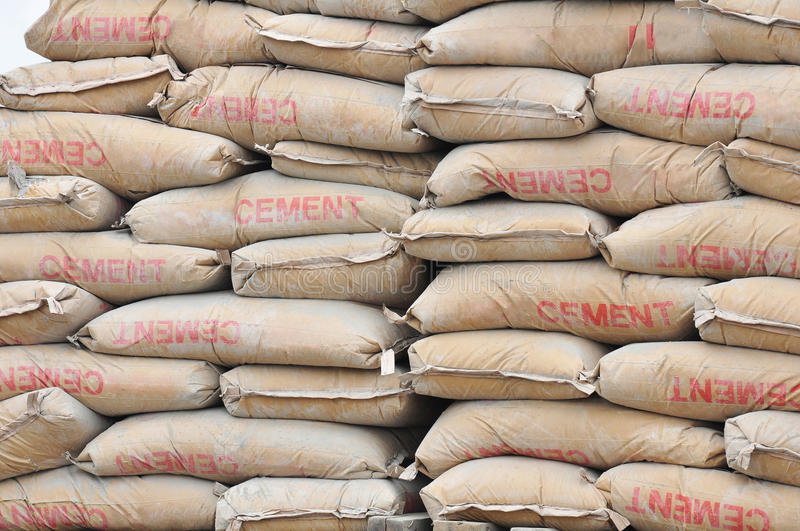The current price of bag of cement in Nigeria today is relatively high when compared to other African countries. The price of cement in Nigeria today is about to crash by 50%. Popular cement brands like dangote, lafarge, Ibeto, BUA, UNICEM etc all sell cement bags almost at same rates. A cement bag weighs 50kg. It’s cheaper to buy cement in wholesale which is same as trailer load. All cement brands sell in wholesales….…CONTINUE READING>>>>>>
Cement’s importance in construction cannot be overstated. Its ability to bind materials together, provide strength and durability, and enable diverse architectural possibilities makes it a fundamental component of modern construction practices.
The Top Cement Brands in Nigeria
Current Price of Bag of Cement in Nigeria
Wholesale Price of Cement in Nigeria Today
Understanding the Importance of Cement in Construction
Breaking Down the Cost of Producing Cement in Nigeria
The Different Types of Cement Available in Nigeria
What Determines the Cost of Cement in Nigeria
Factors Affecting the Rise and Fall of Cement Prices in Nigeria
The Top Cement Brands in Nigeria
Dangote Cement: Dangote Cement is one of the largest and most well-known cement manufacturers in Nigeria. It is part of the Dangote Group, owned by Africa’s richest man, Aliko Dangote. Dangote Cement has a significant market share and operates several cement plants across the country.
Lafarge Africa Plc: Lafarge Africa is another major player in the Nigerian cement industry. The company produces and distributes cement under the brand name “Lafarge Africa” and has a strong presence in the market.
BUA Cement: BUA Cement is a relatively newer entrant but has quickly become a major cement player in Nigeria. The company has invested heavily in cement production facilities and has gained a significant market share in a short time.
Unicem (United Cement Company of Nigeria): Unicem is a subsidiary of Lafarge Holcim, a global cement manufacturer. It operates a cement plant in Cross River State, Nigeria, and is a prominent player in the southern region of the country.
Ibeto Cement Company Limited: Ibeto Cement is another notable cement manufacturer in Nigeria. The company has its cement plant in Enugu State and has been operating for several years.
Recommended for you; Price of BUA Cement in Nigeria Today
Current Price of Bag of Cement in Nigeria
current Price of bag of cement in Nigeria
Different cement brands in Nigeria have different prices they sell their 50kg bags of cement. The average price of bag of cement in Nigeria today February 12, 2024 is ₦6,100. Below is the current Price of bag of cement in Nigeria
Current Price of cement in Nigeria Cement Brands Prices
Dangote Cement ₦6,200
Lafarge Cement ₦6,100
BUA Cement ₦5,900
UNICEM cement ₦6,100
Ibeto Cement ₦6,100
Wholesale Price of Cement in Nigeria Today
It’s cheaper to buy a bag of cement in wholesales than in bags. Delivery is free to your destination. The least quantity to order during wholesales is 100 bags. A full trailer load of cement contains 600 bags of cement. The average wholesale price of cement in Nigeria today February 12, 2024 is ₦3,300,000 per trailer load and ₦5,500 per bag.
Wholesale price of Cement in Nigeria Cement Brands Prices
Dangote Cement ₦3,300,000
Lafarge Cement ₦3,240,000
BUA Cement ₦3,120,000
UNICEM cement ₦3,240,000
Ibeto Cement ₦3,240,000
Understanding the Importance of Cement in Construction
Cement is an important material in the construction industry and plays a vital role in creating durable and stable structures. Here are some key reasons why cement is of paramount importance in construction:
Binding agent: Cement is used as a binding agent in concrete, which is the most widely used construction material globally. It binds various construction components like aggregates (sand, gravel, crushed stone) and water together, creating a solid mass that can withstand significant loads and pressures.
Strength and durability: Cement-based concrete provides exceptional strength and durability to structures. It can resist compressive forces and maintain its structural integrity even under heavy loads and adverse weather conditions.
Versatility: Cement can be used for various applications, from building foundations, roads, and bridges to constructing tall skyscrapers and dams. Its versatility makes it an essential component in a wide range of construction projects.
Construction speed: Cement-based materials can be cast into various shapes and sizes, allowing for faster construction compared to traditional building methods. Prefabricated concrete elements further speed up the construction process and reduce labor costs.
Fire resistance: Concrete made with cement offers excellent fire resistance due to its low thermal conductivity. This property is critical in building fire-resistant structures and protecting human lives and property during fire accidents.
Environmental benefits: Cement production is undergoing continuous improvements to reduce its environmental impact. Modern cement production techniques strive to minimize carbon emissions and energy consumption. Additionally, concrete structures have a long life span and can be recycled or repurposed after demolition, reducing waste generation.
Cost-effectiveness: Cement is relatively affordable compared to other construction materials, and its abundance makes it widely accessible in most parts of the world.
Structural stability: Properly designed and constructed cement-based structures exhibit high resistance to seismic forces and can enhance the safety and stability of buildings in earthquake-prone areas.
Aesthetic possibilities: With the addition of various admixtures and pigments, cement can be tailored to achieve a wide range of colors, textures, and finishes, allowing for diverse architectural designs.
Sustainable construction: Cement plays a significant role in green building initiatives. It can be used in combination with other eco-friendly materials to create sustainable and energy-efficient structures.
Despite its numerous advantages, it’s essential to acknowledge that cement production does have environmental impacts, mainly related to carbon dioxide emissions during the manufacturing process. Efforts are being made to develop alternative cementitious materials with lower carbon footprints to make construction more sustainable in the long term.
Breaking Down the Cost of Producing Cement in Nigeria
The cost of production of cement in Nigeria can be broken down into various components. It’s important to note that the actual costs can vary depending on factors such as location, size of the cement plant, energy costs, government policies, and other operational variables. However, I’ll provide a general breakdown of the major cost components involved in cement production:
Raw Materials: The primary raw materials required for cement production are limestone, clay, and gypsum. The cost of acquiring these raw materials can vary depending on their availability and proximity to the cement plant. Transportation costs from the mining site to the plant can also impact the overall cost.
Energy Costs: Cement production is an energy-intensive process that requires significant amounts of electricity and fuel. The main sources of energy are coal, natural gas, and electricity. Fluctuations in energy prices can have a substantial impact on the cost of production.
Labor Costs: Labor is another significant component of production costs. The cost of labor includes salaries, wages, benefits, and other related expenses for the employees involved in the production process.
Equipment and Machinery: Cement plants require heavy machinery and equipment, such as kilns, crushers, grinders, and conveyors. The initial investment and maintenance costs of this machinery contribute to the overall production cost.
Transportation: Cement needs to be transported from the manufacturing plant to distribution centers or end-users. Transportation costs can vary depending on the distance and infrastructure available for logistics.
Regulatory Compliance: Compliance with environmental and safety regulations may necessitate additional investments and expenses, impacting the cost of production.
Maintenance and Repairs: Regular maintenance and occasional repairs of the plant and machinery are essential to ensure smooth operations and can add to the production cost.
Administrative and Overhead Expenses: Administrative expenses, such as management salaries and office costs, as well as overhead expenses, will be included in the cost of production.
Taxes and Duties: The cement industry may be subject to various taxes, duties, and levies imposed by the government, which can affect the overall production cost.
Exchange Rate Fluctuations: If the cement plant relies on imported equipment or raw materials, fluctuations in the exchange rate can impact production costs.
ALSO READ; Price of Dangote Cement in Nigeria Today
The Different Types of Cement Available in Nigeria
Nigeria produces and uses various types of cement to meet the construction demands in the country. The most commonly used types of cement in Nigeria are:
Ordinary Portland Cement (OPC): OPC is the most widely used type of cement in Nigeria and is suitable for general construction purposes. It is available in various grades, such as 42.5 and 32.5, with different strength characteristics.
Portland Limestone Cement (PLC): PLC is a variation of Ordinary Portland Cement that incorporates limestone in its composition. The addition of limestone can enhance certain properties of the cement, such as reducing heat generation during hydration and improving durability. It is commonly used in road construction and other infrastructure projects.
Portland Pozzolana Cement (PPC): PPC is a type of cement that contains pozzolanic materials like fly ash, volcanic ash, or silica fume. These materials enhance the cement’s strength and durability. PPC is suitable for use in both general construction and large-scale infrastructure projects.
White Cement: White cement is produced using raw materials with low iron content, resulting in a white or off-white color. It is primarily used for architectural purposes, decorative works, and aesthetic applications.
Masonry Cement: Masonry cement is a blend of OPC and finely ground limestone, often used for plastering, bricklaying, and other masonry works.
Oil Well Cement: This type of cement is designed specifically for use in oil well drilling operations. It has properties that can withstand the high temperatures and pressures encountered in oil and gas wells.
Rapid Hardening Cement: Rapid hardening cement is used in situations where quick setting and early strength gain are required. It finds applications in repair works and precast concrete elements.
Sulphate Resistant Cement: This type of cement is used in areas where the soil or groundwater contains high levels of sulfates that could attack and degrade regular cement. It is suitable for construction in sulfate-rich environments.
Low Heat Cement: Low heat cement is designed to generate less heat during hydration, making it suitable for large concrete pours and massive structures.
What Determines the Cost of Cement in Nigeria
The cost of cement in Nigeria is influenced by various factors, including both internal and external factors. Some of the key determinants of the cost of cement in Nigeria are:
Raw Material Costs: The primary raw materials for cement production are limestone, clay, and gypsum. The availability and cost of these raw materials can significantly impact the production cost of cement. Cement companies must secure a stable supply of these materials to keep costs in check.
Energy Costs: The production of cement is an energy-intensive process. The cost of energy, such as electricity and fuel (e.g., coal, gas), affects the overall production cost of cement. Fluctuations in energy prices can lead to changes in cement prices.
Transportation Costs: Cement plants are often located near the source of raw materials, but the final product needs to be transported to distribution centers and retailers across the country. Transportation costs, which include fuel prices, road conditions, and logistics, can affect the final retail price of cement.
Infrastructure and Distribution Costs: The state of infrastructure in Nigeria can impact distribution costs. Good roads and transportation networks can lead to lower distribution costs, making cement more affordable in remote areas.
Government Policies and Taxes: Government policies, regulations, and taxes can influence the cost of cement. For instance, taxes on raw materials, energy, or the final product can impact the overall cost and pricing.
Currency Exchange Rates: Many cement manufacturers import machinery and equipment from foreign countries. Fluctuations in currency exchange rates can affect the cost of imported equipment and, subsequently, the cost of cement.
Market Demand and Competition: Supply and demand dynamics in the cement market can impact prices. When demand is high and supply is limited, prices tend to rise. Competition between cement manufacturers can also affect pricing strategies.
Production Efficiency and Technology: The efficiency of cement production and the level of technology used in the manufacturing process can influence production costs. Modern and efficient plants can produce cement at a lower cost, which may be reflected in the market price.
Economic Conditions: The overall economic situation in Nigeria can also play a role in determining cement prices. In times of economic growth, construction activities increase, leading to higher demand for cement, and vice versa.
Factors Affecting the Rise and Fall of Cement Prices in Nigeria
The rise and fall of cement prices in Nigeria, as in any other country, can be influenced by a combination of various factors. These factors can include:
Demand and Supply: Like any commodity, cement prices in Nigeria are greatly influenced by the demand and supply dynamics in the market. When demand for cement increases due to infrastructure projects, construction activities, or housing development, and the supply cannot keep up, prices tend to rise. Conversely, when demand decreases or there is an oversupply of cement, prices may fall.
Economic Growth and Construction Activity: Economic growth and construction activity play a significant role in cement demand. During periods of strong economic growth, there is often increased investment in infrastructure and real estate projects, leading to higher demand for cement and subsequently higher prices.
Exchange Rates: Nigeria imports some of its cement and raw materials, so fluctuations in exchange rates can impact the cost of imports, which may affect local cement prices. If the local currency weakens against foreign currencies, the cost of imported cement and raw materials may rise, leading to higher cement prices.
Transportation Costs: Cement is a heavy and bulky commodity, and transportation costs can significantly impact its final retail price. Higher fuel prices or logistical challenges can contribute to increased transportation costs, which may be passed on to consumers in the form of higher cement prices.
Government Policies and Taxes: Government policies, import tariffs, and taxes on cement production and sales can influence the cost structure and, consequently, the retail price of cement in Nigeria. Changes in these policies can lead to fluctuations in cement prices.
Raw Material Costs: The cost of raw materials such as limestone, clay, gypsum, and fuel for cement production can impact cement prices. If the costs of these inputs increase, cement manufacturers may adjust prices accordingly.
Monopoly or Oligopoly: In some cases, the cement industry in a country may be dominated by a few major players, leading to an oligopoly or monopoly. Such market structures can influence prices, as dominant companies may have the power to control supply and set prices.
Weather Conditions: Adverse weather conditions can disrupt cement production and transportation, leading to supply shortages and potential price increases.
Energy Costs: Energy is a significant cost factor in cement manufacturing. Changes in energy prices can impact the overall production costs, which might be reflected in cement prices.
Technology and Efficiency: Advancements in technology and production processes can lead to more efficient cement manufacturing. This efficiency can affect production costs and, in turn, influence cement prices.
It’s important to note that these factors interact and can have a complex and dynamic impact on cement prices in Nigeria. As a result, the cement industry is subject to fluctuations and may experience both short-term and long-term price changes.…CONTINUE READING>>>>>>










